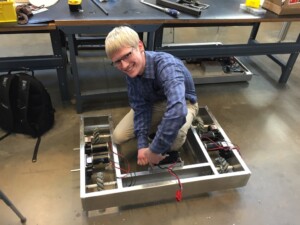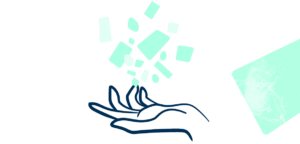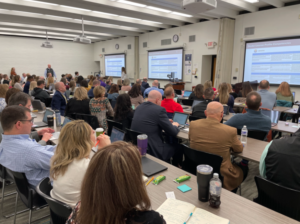The Think Tank

In June, I ran a short series of articles on alternatives to the traditional science museum, from pop up museums to learning labs on wheels. I recently caught up with one of those projects: The Think Tank had recently wrapped up a successful crowd sourcing campaign on Indiegogo and was looking ahead to actually building their truck-turned-learning lab. I spoke with co-founder Tyler Alterman about what’s next for The Think Tank now that they’ve settled into their new home base at the University of Chicago. [I’ve edited our interview for length and clarity.]
You originally started in New York – why the change to Chicago? What happened is my lab director Daniel Casasanto was hired by the University of Chicago and he fought to bring the project over from New York. The University of Chicago’s new mission emphasizes civic outreach so they brought both of us over along with our entire lab and we’ve been working on collaborating with faculty members at U C and connecting with science centers here since.
Why this model? What does a mobile think tank do that a museum exhibit or an in-school program cannot? Precisely the ability of a mobile lab to engage audiences that wouldn’t normally engage with science, and the ability to take quality science education to communities who wouldn’t normally engage, to people who wouldn’t have a good experience with science education.
You say communication about brain science is one of the goals — are the side walk and demonstration programs aimed at adults? Definitely still part of our plans but integrated in those plans is increasing the science community beyond its bounds. But now that it’s a formal part of our mission to use this mobile lab to bring this people off the street who normally wouldn’t be interested in engaging science and inspiring passion. Often going to a science festival you’ll see similar types of people as you’d see at other science talks. I participated in the Free University and they had university professors come and teach their subjects on city streets and parks and you saw all different faces in the crowd. I gave a talk and had people come up to me and say, “I was never interested in science before but this stuff is way more fascinating than I realized.”
Are you partnering with other groups? Definitely. Right now, although we’re trying not to create formal partnerships until we have the truck, we’ve been meeting with people from the Museum of Science and Industry and the Chicago Council of Science and Technology and with clubs all around campus that deal with teaching psychology. There’s also the Chicago Charter School system and pretty much every science organization in the city we’d be apt to partner with. Part of our motivation in not setting up in a museum but in a mobile lab is often in museums you’ll see the same types of audiences and the ones you really want to reach, the ones who really don’t have opportunities for science outreach can’t get there.
Where will the Think Tank go beyond Chicago? The beauty of a lab on wheels is that its inexpensive enough that it can be replicated anywhere there’s a research university and graduate students. Right now Chicago is our testing grounds and we’re considering expanding beyond Chicago but we want to make sure it works first. It’s also a transition to the UC; we had a pretty big shift in mission. To me it’s an important one because the original mission was that we would use the knowledge we’ve accumulated in cognitive science to lead better lives with all the findings on, say, exercise’s effect on the brain. But then I spoke to a number of cognitive scientists, including Nobel Laureate Daniel Kahneman. His comment, which spurred the shift in mission, [was that] our discipline is still too young and the so-called facts get more attention than they deserve when they are still in flux. Danny came back from UC after his job interview with this higher calling of increasing diversity in STEM.
Are you going to follow up with people who come to the Think Tank? Will there be an opportunity for them to sign up or join some sort of community? That’s one of the things we really want to focus on because often a theme in the nonprofit world is you have the impact and there’s no follow up or evaluation so with our street science program, which is one of our initiatives, the aim will be to get people on our mailing list and they’ll be hearing not only about Think Tank events but we’ll hopefully be joining forces with other science organizations around the city and connect people to the STEM community in general.
Can you tell me more about the Think Tank Fellows program? Who will it be open to? Ages? How will you match them with mentors? We will select — we’re thinking 12 — minority or female high school students and put them in world class research labs at UC and they have apprenticeships over the summer. They participate in the whole process of science and are mentored in writing letters for college application and what not; they’ll also have cohorts with regular events after they graduate.
Edits: This article was updated 12/11/12013 to reflect that Mr. Casasanto worked to bring the Think Tank program to Chicago from New York, not a dean from the university; and to correct a misspelling of Mr. Casasanto’s name.





0 Comments
Leave a Comment
Your email address will not be published. All fields are required.